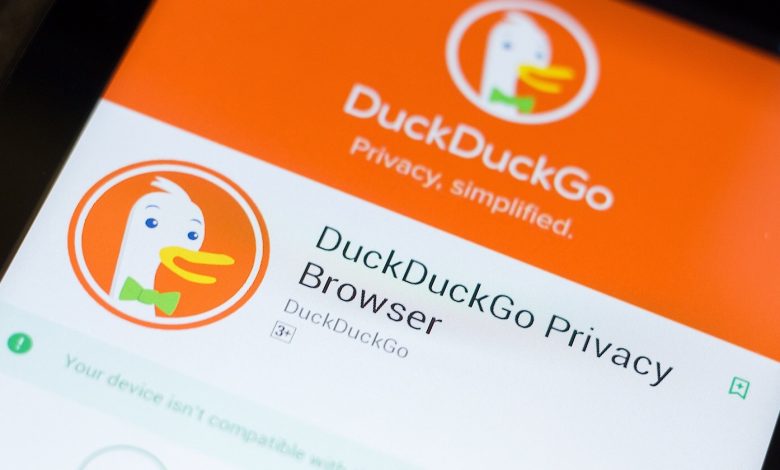
Following Google’s record $5 billion fine by the EU for antitrust violations, DuckDuckGo, a competing search engine, has expressed its concerns regarding Google’s search practices.
In tweets from its official account, DuckDuckGo supported the EU’s actions against Google’s anti-competitive search behavior. The company mentioned the negative impact of these practices on its market share, especially on mobile devices compared to desktop platforms.
DuckDuckGo highlighted difficulties faced in competing with Google, noting that until recently, it was not possible to add DuckDuckGo to Chrome on Android. Additionally, users cannot add it on Chrome for iOS, nor is it included in the default search options, unlike in Safari, despite its popularity in various countries.
The company also pointed out that Google’s search widget is prominently featured on most Android builds, making it impossible to switch search providers without altering the entire operating system through a launcher. This effectively made it difficult to remove without significant adjustments.
Moreover, DuckDuckGo remarked that Google’s anti-competitive behavior is not limited to the Android system. Every time DuckDuckGo updates its Chrome browser extension, users are confronted with a prompt from Google questioning if they want to revert search settings or disable the extension entirely.
DuckDuckGo also highlighted concerns over Google owning a domain that redirects to Google, creating confusion among DuckDuckGo users. This action by Google is perplexing to many, raising questions about the intent behind acquiring such a domain.
Gabriel Weinberg, CEO and Founder of DuckDuckGo, commented via his Twitter, pointing out that despite the massive fine, Google’s substantial profits in 2017 suggest that lasting changes will require behavioral changes rather than a one-off monetary penalty. He emphasized the need to simplify the process of switching search engines from a competitor’s standpoint.
Since the announcement of the EU’s fine, DuckDuckGo has been vocal in its criticism of Google, including a recent tweet debunking myths about Google Chrome’s Incognito mode and its tracking settings, while highlighting how DuckDuckGo addresses online tracking.
These tweets and responses were part of an ongoing discussion about the implications and consequences of Google’s practices in the digital market space.


